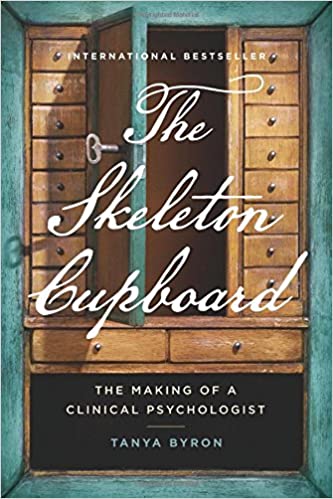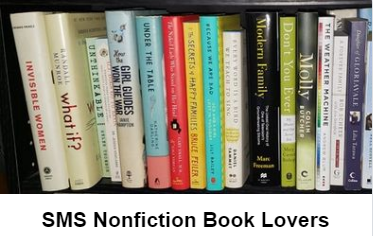A book review of The Skeleton Cupboard: The Making of of a Clinical Psychologist by Tanya Byron
Stars: ****
Flatiron Books (2015)
Memoir/Psychology
320 pages
Disclosure: This post contains affiliate links.
Summary: The gripping, unforgettable, and deeply affecting story of a young clinical psychologist learning how she can best help her patients, The Skeleton Cupboard is a riveting and revealing memoir that offers fascinating insight into the human mind.
In The Skeleton Cupboard, Professor Tanya Byron recounts the stories of the patients who most influenced her career as a mental health practitioner. Spanning her years of training―years in which Byron was forced her to contend with the harsh realities of the lives of her patients and confront a dark moment in her own family’s past―The Skeleton Cupboard is a compelling and compassionate account of how much health practitioners can learn from those they treat. Among others, we meet Ray, a violent sociopath desperate to be shown tenderness and compassion; Mollie, a talented teenager intent on starving herself; and Imogen, a twelve-year old so haunted by a secret that she’s intent on killing herself. Byron brings the reader along as she uncovers the reasons each of these individuals behave the way they do, resulting in a thrilling, compulsively readable psychological mystery that sheds light on mental illness and what its treatment tells us about ourselves.
The Skeleton Cupboard
This was a very interesting read which I expected as I love reading about psychology and mental illness. Unlike other memoirs by those in similar industries, this one doesn’t just focus on the patients.
“I have read many books written by people working in the field of mental health in which they’ve described cases they’ve worked. One thing that has always struck me is that the spotlight tends to be on the people being treated, never also on those who do the treating. For me, this approach appears to collude with the prevailing, and dangerous belief that there are people who are ‘mad’ and people who aren’t. It also elevates the role of the mental health practitioner unduly – we appear to observe, assess, formulate and treat from some distant vantage point. I don’t believe that it works like that. In these pages I have tried to capture my own journey, to show how the differences between patient and clinician are often slight, merely a matter of degrees. “
I enjoyed how she showed her journey as well. The part above that says the patient and clinician are only slightly apart is so true. The author shows her anxiety, her doubt, her feelings. She’s not this high and mighty psychologist who never deals with sadness, anxiety or anger. She feels everything her patients feel. She just barely manages them. At first someone might think this means she’s not qualified to treat patients. But in reality, it means she understands them even more than someone who is completely in control might.
Also because the author wasn’t fully qualified at the point that these stories happen, it would be a good book for other psychologists to be to read. They might identify with the author and learn some valuable lessons along the way.
There are some transphobic remarks but I didn’t penalize the book for that because it takes place mostly in the 80s. This was how people acted back then.
Buy The Skeleton Cupboard at Amazon.com and help support the blog.
Find The Skeleton Cupboard on Goodreads.









